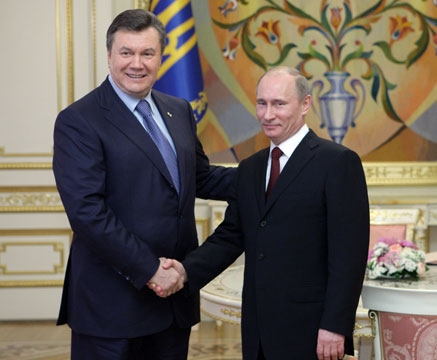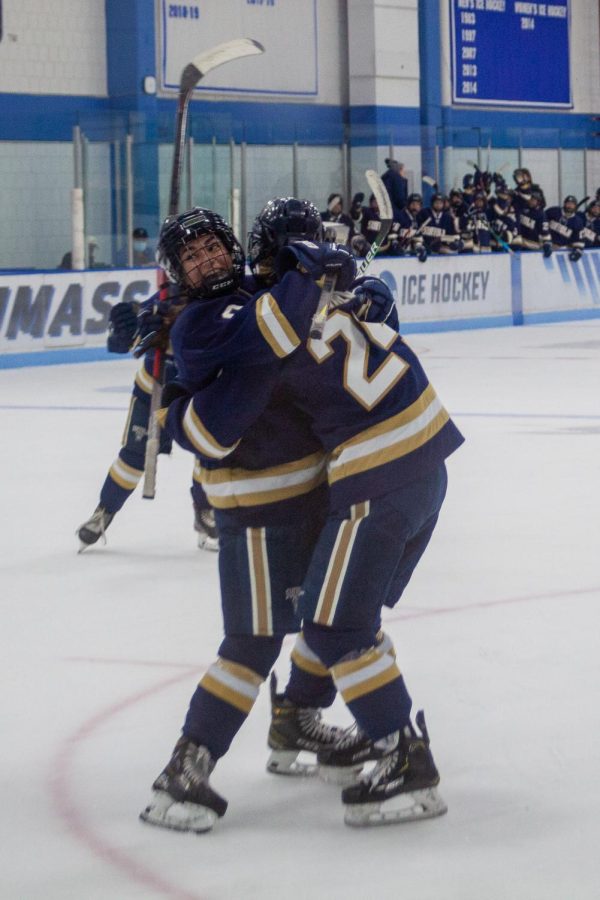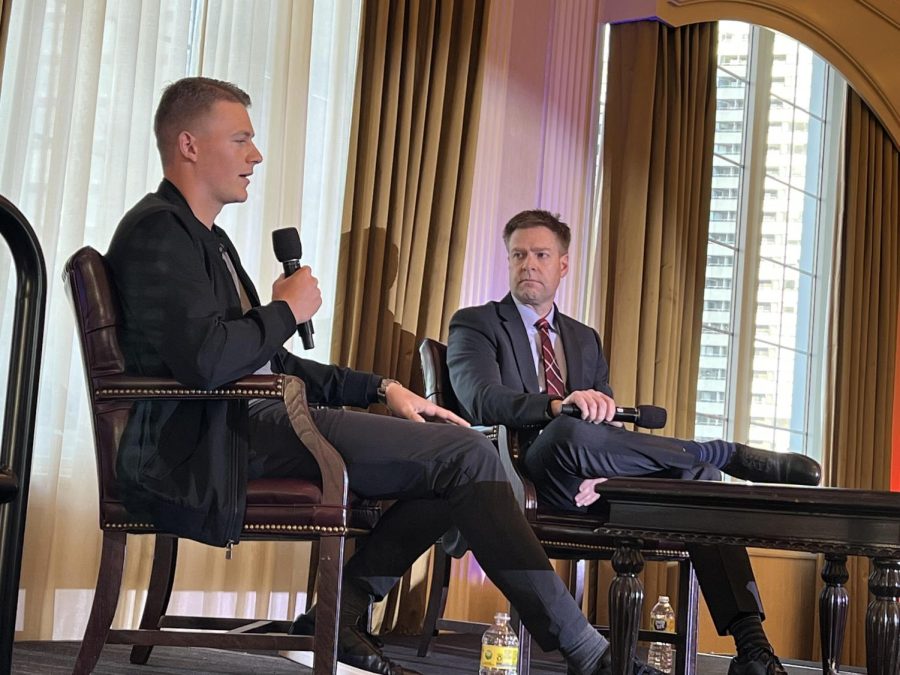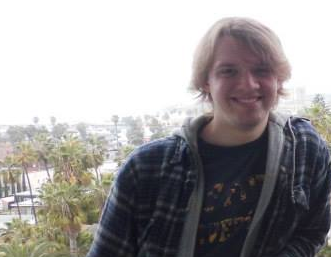Over the last week or so, one issue has dominated the international news headlines: the crisis in Ukraine.
Following the overthrow of pro-Russian President Viktor Yanukovych, Russian forces have occupied Ukraine’s Crimean peninsula. The peninsula is the site of a Russian naval base, and about 60 percent of its population is ethnically Russian. Russian president, Vladimir Putin, has defended the invasion as an operation to protect the Russian speaking demographic in Ukraine. Russians make up a large amount of the population and some fear persecution, as some elements of the recently victorious opposition are fanatically anti-Russian. Although shots have yet to be fired, the situation is tense and can flare up at the smallest provocation.
In the West, the Russian occupation of Crimea has been met with a barrage of criticism and political posturing. America has already pulled out of planned joint military exercises with Russia, and has suspended preparations for the upcoming G-8 meetings in Sochi. There has even been talk of kicking Russia out of the G-8 entirely. Threats of economic sanctions and vague statements on “the costs” of Putin’s actions are being issued from Washington, as Secretary of State, John Kerry, has made the rounds on the cable news networks, denouncing the invasion of a sovereign nation on “false, trumped-up pretext.”
Although he stayed silent on the issue through the first few days, Putin held a press conference on Monday to discuss the issue. In his usual calm, cool, and collected manner, Putin laid out to the Russian press his thoughts on the situation. Sticking with the Russian narrative of recent weeks, he emphasized the illegitimacy of Yanukovych’s overthrow, the dangerous fascist elements of the opposition, and the motives of the West. Notably, he denied that the mysterious soldiers bearing no insignia that had occupied the Crimean peninsula were not Russian.
“Look at the former Soviet Republics. Because there are a lot of uniforms that look like [Russian uniforms]. You can go a store and buy a [Russian] uniform. Were these Russian soldiers? No. They were local self-defense forces.”
This statement by Putin highlights the delicate situation he is in. He has been accused by the West of breaking international law by his invasion of Crimea. By sending in soldiers bearing no national insignia, he can claim the soldiers are not Russian. And since Crimea has an ethnic Russian majority, it is plausible that local militias set up in self-defense could speak Russian, as these “mysterious” soldiers do. Now, seemingly clear of the burden of defending his actions on the international legal stage, Putin is able to deflect questions of legality on to the Ukrainian opposition.

“So are the current authorities legitimate? Parliament, partially yes. The rest are not. And of course, the interim president is not legitimate. There is only one legitimate president. Of course he has no power, that is clear … from the legal point of view, it is Mr. Yanukovych who is the legit president … it cannot be challenged.”
Constantly referring to the change in power in Kiev as an “armed coup,” Putin failed in the hour-long press conference to mention even one time that Yanukovych was stripped of his powers by the Ukrainian parliament in a unanimous vote.
In another attempt to deflect the conversation away from Russian involvement in the issue, Putin took to blasting his Western counterparts. In a general comment directed at Western, and specifically U.S., policy, Putin said, “let’s remember what the U.S. did in Afghanistan, Iraq, and Libya. They acted there either without any sanction of the U.N. Security Council, or they distorted the meaning of a Security Council resolution … our partners, especially in the U.S., always make it very clear what their geopolitical and national interests are, and they pursue those interests with much determination. Then they use this phrase: ‘whoever is not with us is against us.’ They use this phrase to make all of the other countries comply to their will. And if some countries don’t comply, they attack them and eventually make those countries regret.” Building on his criticism of U.S. policy, Putin then presented the Russian intervention and any possible further as both legal, and just.
“I have always supported international law, and once again would like to emphasize that even if I decide to use armed forces, this will be a legitimate decision fully in line with the general principles of international law because we have received a request from a legitimate president [Yanukovych]. And it will also be in line with our commitments. It meets our interest because we will be protecting the people we consider closely associated with us historically, culturally and economically … and this is a humanitarian mission. It is not our goal to conquer somebody, to dictate to somebody. But of course we will not remain indifferent if we see those people (ethnic Russians) are being destroyed, humiliated, and killed. I really hope that it will never come to this.”
The main issue with Putin’s argument is that there have been no widespread reports of said persecution against ethnic Russians, and the interim Ukrainian government has sworn to protect the rights of all Ukrainian citizens. Yes, it is true that during the protests that toppled Yanukovych, there were some ethnic Russians attacked in the streets by the more radical elements of the opposition. And yes, it is true that while the new government has sworn to protect all Ukrainians, they may find that they will have trouble controlling the radical, nationalist elements they also represent. While he makes very legitimate points about the credibility of the U.S. in criticizing such moves of aggression, in no way does it justify his actions or make them right.
While he made it clear that he would not hesitate to exercise Russian power if he felt ethnic Russians were threatened, there were also points where he attempted to tone down the aggressive rhetoric that both sides have spewed in recent days. He said “I’m convinced that Ukrainian personnel and Russian personnel will not be defending different sides of the barricades, they will be standing on the same side of the barricade,” and at one point later on in the conference bluntly stated “We are not going to go to war with the Ukrainian people.”
Another prevalent theme throughout the conference was his seeming disdain for Yanukovych. For a leader he supposedly supported, Putin had heavy criticism. When asked if he felt sympathy for Yanukovych, he said “No… A person who performs such obligations as the head of state has certain rights and has certain obligations, duties; and his biggest duty is to implement the will of the people who entrusted him with the country, staying within the boundaries of the law.”
“I don’t think he has a political future. And I told him about that,” he said at a different point in the press conference.
So, what can Americans take away from Putin’s press conference? The most important thing is that there is only a small chance this crisis can escalate into open international conflict. Putin may be a rogue leader who takes joy out of provoking the international community led by the West. He may even be an autocrat within his own country. But one thing Vladimir Putin is not, is stupid. He recognizes that open war benefits no one, and just like Obama during last summer’s Syria crisis, he recognizes that what may seem like a quick intervention against a militarily inferior country could turn into a protracted conflict.
On the flip side, Putin is not intimidated by the West. He feels that in today’s integrated global economy, sanctions against Russia could hurt the West just as much as they could hurt Russia. And on the possibility of G-8 isolation, he simply said, “we are prepping for summit and will be ready to receive our colleagues. If they don’t want to come, that is up to them.”
On another note, it is just as important to pay attention to what Putin has to say as it is to pay attention to what our own president, or John Kerry has to say.
Reading between the lines, the two sides convey the same message. In his own press conferences, Kerry has avoided addressing any alleged wrongdoings or covert diplomatic action by the U.S., instead choosing to focus on the mistakes Russia is making. Both sides claim to care only for the Ukrainian people and that all of the actions they have taken have been only to benefit and help them. Most importantly, both sides are stressing a diplomatic solution to the issue.

This is where the hypocrisy on both sides reaches a level where it is hard to hide. Putin wishes for a diplomatic solution out of one side of his mouth, while using the other side to order troops into sovereign foreign territory. The West also wishes for a diplomatic solution, but has immediately threatened sanctions and isolation for Russia. German chancellor, Angela Merkel, has publicly stated that Putin has “lost all touch with reality.”
Common sense indicates that when attempting to resolve a crisis through dialogue, it is probably not a good idea to start by questioning to mental condition of the person you are compromising with. It is also not constructive to threaten the institution that person represents. It is even more blatantly hypocritical to claim a desire for peace as you deploy troops to an area.
It seems as though the crisis in Ukraine is just another foreign policy blunder by both the Putin and Obama administrations. Both sides are clinging to rhetoric that no longer fools anybody; they care only about geopolitical gains and winning the international “stick measuring contest” that only politicians take any serious merit from. In doing this, they are ignoring not only what is best for the people of their own countries, but for the people of Ukraine. It is up to the individual to educate themselves on all sides of the story, and from there, one can draw their own conclusion as to what the real situation is.













